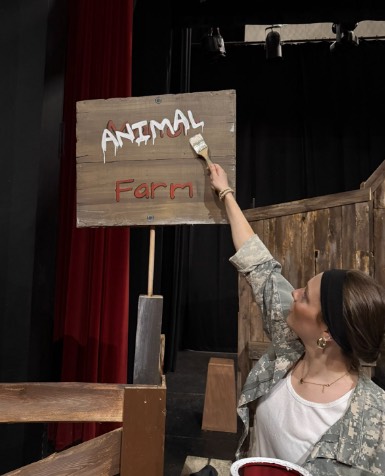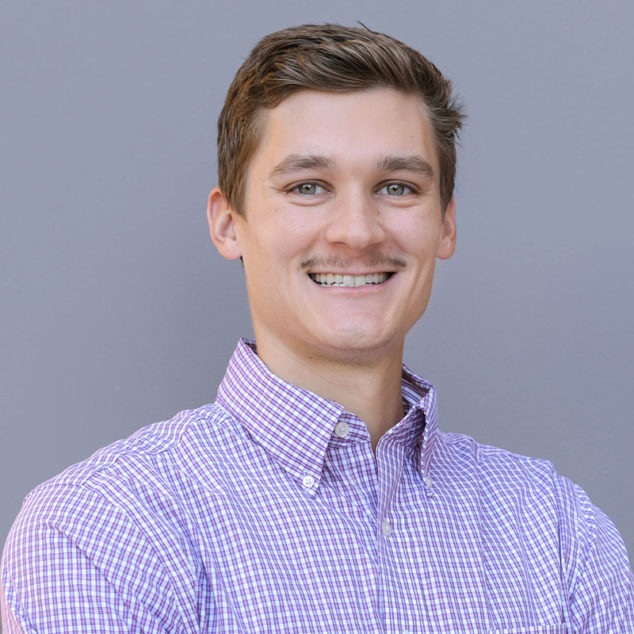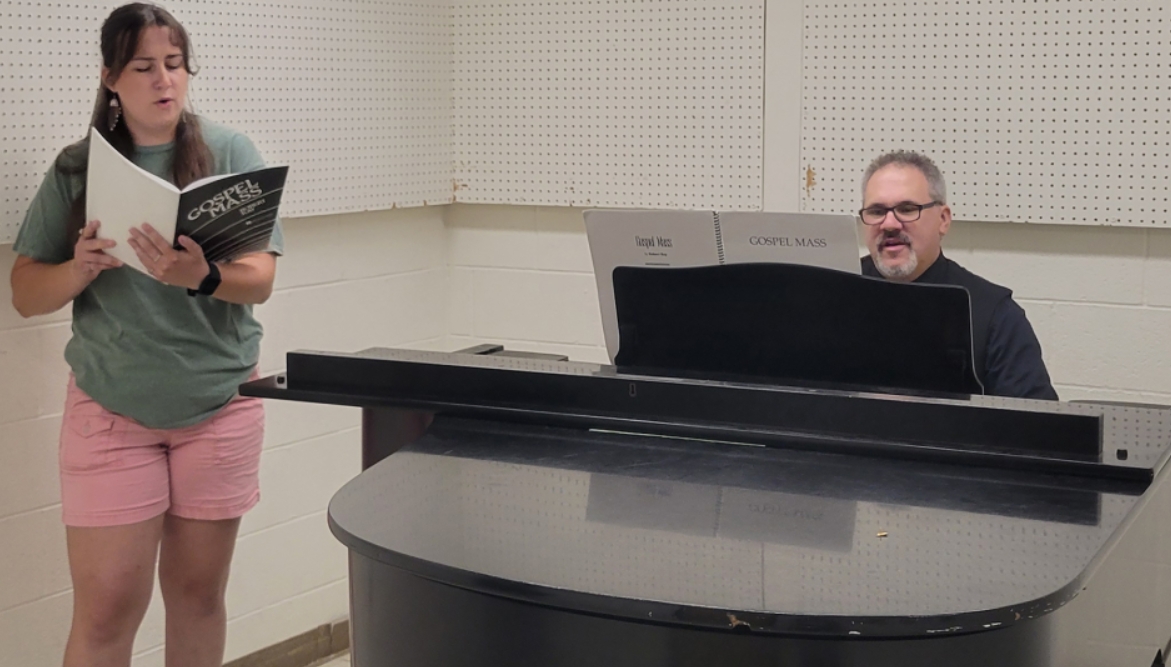By Hannah Mason, Assistant Editor
In recent weeks, there have been a number of articles published about university cuts to certain academic programs, extracurricular activities, and other areas. According to administrators, these budget cuts have resulted from reductions in state appropriation and a decline in enrollment; however, they said, the university is continuing to work toward overcoming these challenges and the West Liberty community should try to stay positive.
“West Virginia is experiencing some significant financial challenges which have directly affected all institutions of higher education in the state,” said Dr. Tammy McClain, interim dean of the College of Liberal Arts. “One way that this has impacted WLU is that it reduced the amount of state appropriation, which is the amount of money that the state contributes to support public institutions. What that means is that WLU’s budget is primarily derived from tuition.”
Specifically, according to Stephanie Hooper, CFO and vice president of finance, the state has reduced the university’s appropriation over $1.4 million since 2013, and the appropriation has been reduced midyear twice during that time period, including during the second quarter of 2016. Reductions in 2017 could be anywhere between 2-10%, she said.
Reductions in funding from the state are not the only problem; decreased enrollment is also occurring due to smaller graduating classes from local high schools and community colleges. Significant losses in jobs in West Virginia have also resulted in a general decline in state population, which has contributed to decreased university enrollment as well, Hooper said.
Despite these challenges, Hooper said, “The financial state of the University is good. Administration’s job is to ensure that we remain that way. Each reduction in state appropriation has to be countered with cost saving measures so that we can keep tuition for our students as low as possible. Keeping tuition low during low enrollment and state appropriation reductions is a challenge.”
Some of these cost saving measures have included cuts to extracurricular programs such as the marching band, personnel cuts, and removal of academic programs with low enrollment.
McClain said, “I can assure you that the decision to make the changes that have been made was not taken lightly. All decisions were made in an attempt to minimize the impact to the academic mission of the university and to our students. No one wanted to make cuts in any area, but with limited finances, we could not continue to do everything that we had been doing. Prior to any changes to programs, we first looked at any opportunities to decrease spending (ex. using digital formats in place of paper copies, having students purchase scantrons for courses that required them, rather than spending significant amounts of money to provide them, etc). We then looked at non-academic areas that would least impact students’ education. Programs that had very low enrollment and had upper level courses that regularly failed to attract students were also evaluated in terms of whether a reduction in one area would help us maintain support in an area that was strong and had potential for growth.”
For example, Dr. Brian Crawford, the Provost, said that the mathematics major is the only full program being closed, but that several social science majors will also be removed, including political science, sociology, and interdisciplinary pre-law. McClain added that the B.A. in psychology would also be removed, though the B.S. in psychology will still continue to be offered.
Crawford also said that though a few new faculty positions will be added, several vacancies will be left unfilled for next year, depending on need for individual programs. “The overall number of faculty and staff will be lower next year,” he said, “but it will be appropriate for the number of students in our programs.
According to Crawford, “There are programs, majors, and minors closed every year, while new programs, majors, and minors are started. It’s a normal process that simply reflects changing student demand and is always focused on providing the highest quality academic experiences possible given current and anticipated resources.”
The overall current focus of the university in the midst of the financial circumstances, Crawford said, is increasing enrollment. “This is being done by adding new majors and programs that we believe will be beneficial to students and the region, while working to increase public awareness of what West Liberty has to offer, and maintaining affordability,” he said.
While some programs with low enrollment are being removed, then, at the same time new programs such as zoo science, an online MBA, and a Master’s in Criminology are being added to next year’s curriculum.
According to Crawford, the budget for next year was approved by the Board of Governors on Wednesday, April 13. Crawford said that the budget leaves room to adjust for either reduced or increased enrollment, so they can add more reductions or take them away as needed.
Dr. Matthew Harder, interim dean of the College of Arts and Communication, said, “The President must present a balanced budget to the Board of Governors and he has to make some very hard decisions. He has been very good about open communication with all of the stake-holders. It is an unfortunate situation, to be sure, but we continually strive to maintain excellent academics and keep our focus on the students.”
Despite challenges and changes, university administrators encourage the West Liberty community to focus on the many positives that the university offers, to act as ambassadors for the university in the community, and to become supportive alumni someday.
“The best thing that the university community can do is to focus on the positives, and there are many to rally around,” McClain said. “If you look for things to dislike, you will always find them. It is tempting to take for granted the many positives while focusing on those things with which we disagree. It is also tempting to blame the proverbial ‘they’ without understanding the very real struggles that are being faced. … Ultimately, you only get out what you put in, so be all in. This is rehearsal for life where you will experience challenges. It is what you do with the challenges that defines you.”
Photo by Daniel Morgan







